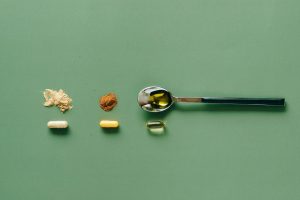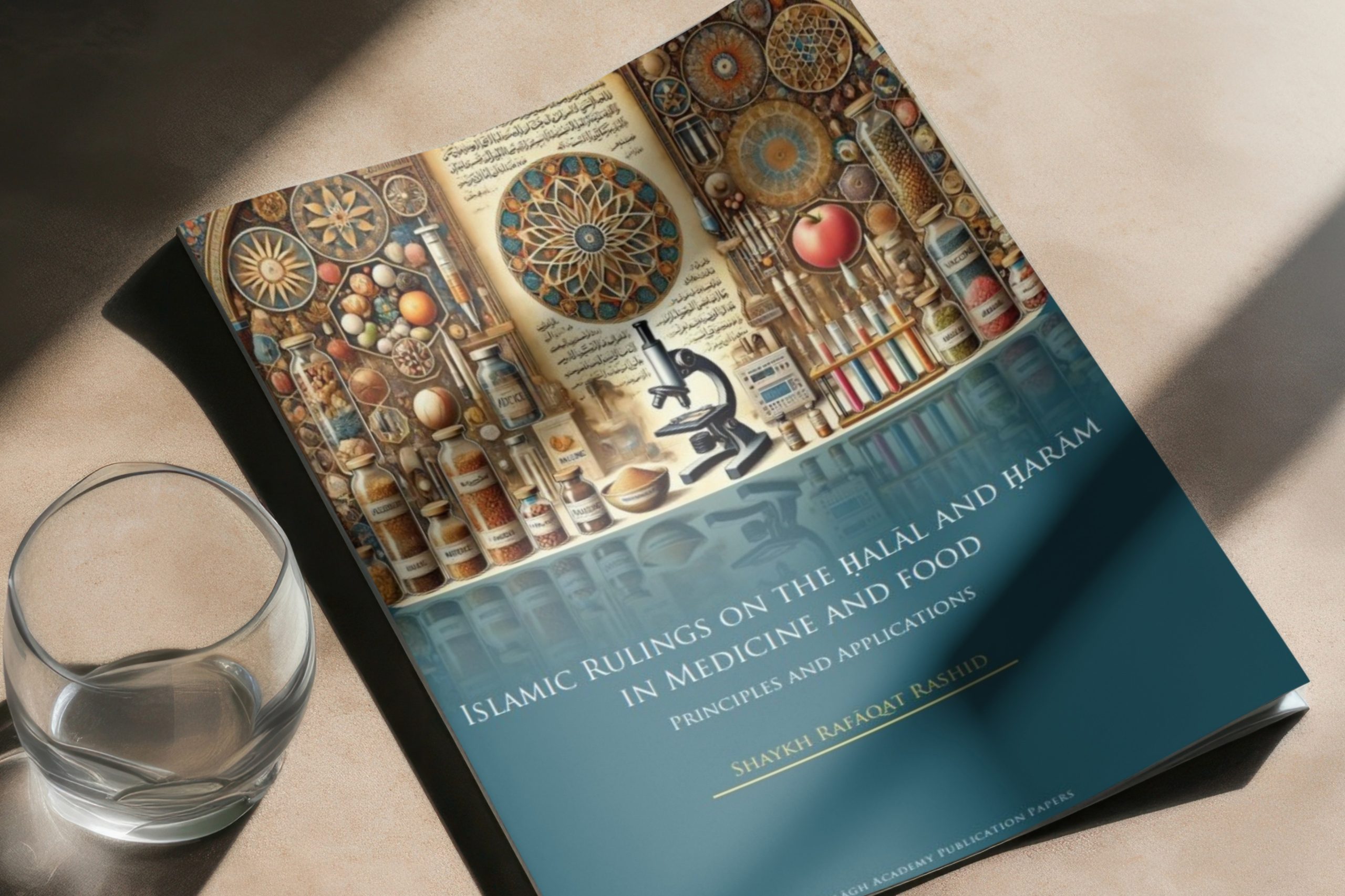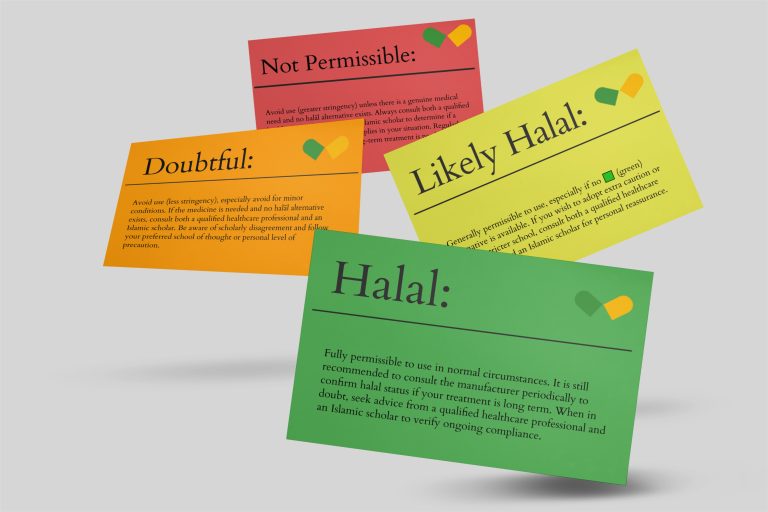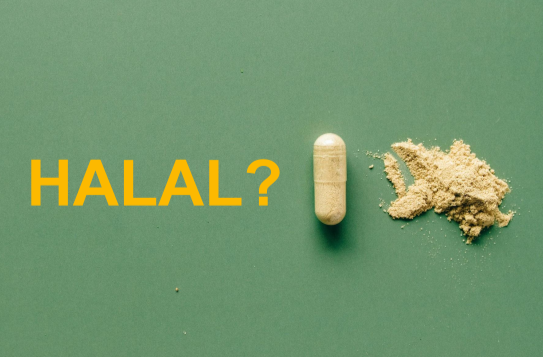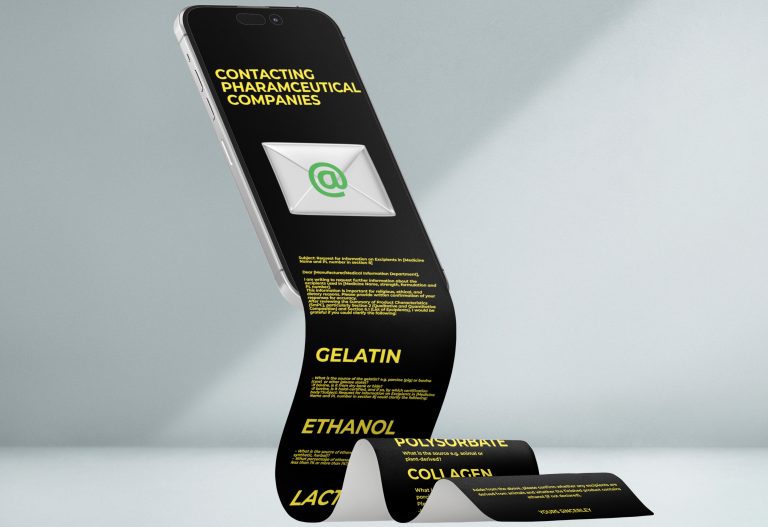Carmine in medicines
This resource explains the use of carmine in medicines and outlines the Islamic rulings on its permissibility.
What is carmine and how is it used in medicines?
Carmine is a red-crimson dye extracted from dried crushed beetles. Carmine is sourced from Cochineal beetles (Dactylopius coccus) (Cochinea).12
Carmine or dyes that are derived from insects may also be be referred to on labels as:
Carmine should not be confused with indigo carmine and indigo carmine lake. Indigo carmine and indigo carmine lake are blue synthetic dyes and are considered halal.5
Carmine is used as a colouring agent in medicines to give the medicine a red or pink colour.6
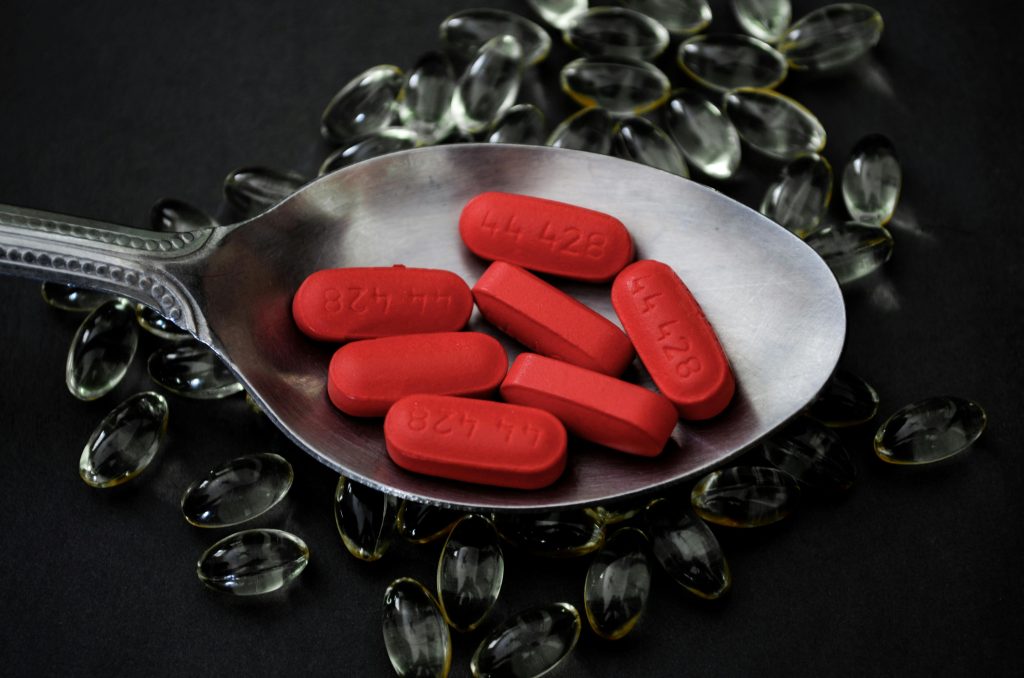
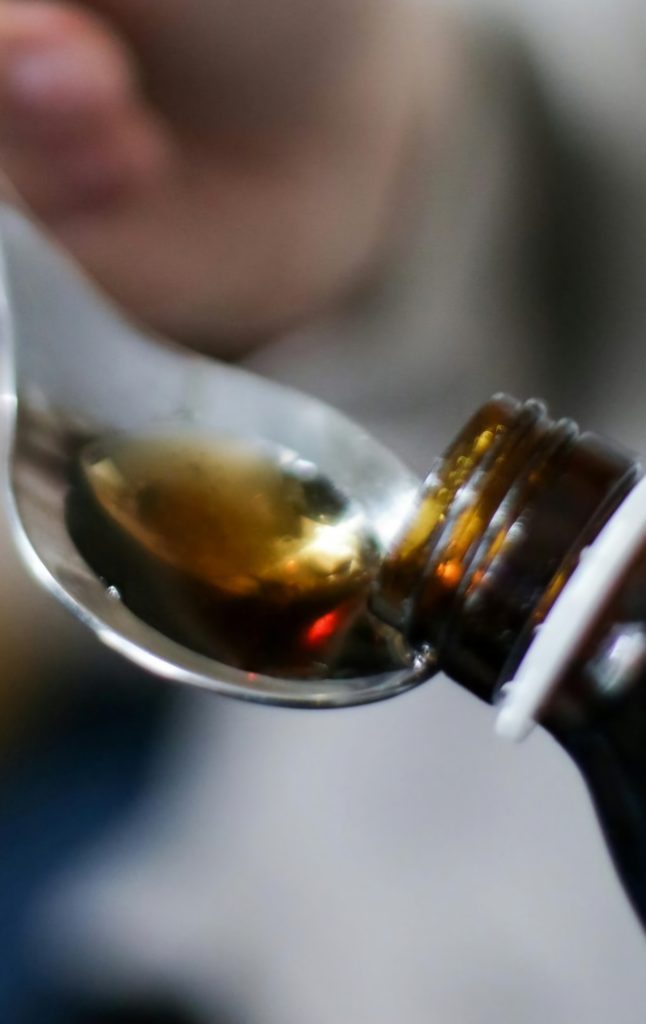

🕌 Islamic ruling on carmine
| Use and source | Ruling |
|---|---|
| Consumption of carmine source: dead insects | ❌ Haram according to (Hanafi*, Shafiʿi, Hanbali) ✅Halal according to majority in Maliki school of thought |
| Topical application of carmine source: dead insects | ✅Halal according to all four schools of thought (Hanafi,Maliki, Shafiʿi, Hanbali) |
For consumption: carmine (which is derived from dead insects) is considered haram to consume by the majority (three of the four schools of though Hanafi*, Shafiʿi, Hanbali). The Maliki school, however, holds a differing view, with the majority of its scholars regarding carmine as halal (permissible) to consume
For topical application: all four schools of thought agree that it is halal if carmine is applied topically.7
*There are a minority of Hanafi scholars that consider that consumption of carmine could be halal.
For a more detailed explanation regarding the reasons behind these rulings, including why a minority of Hanafi scholars consider the consumption of carmine to be potentially halal, click the button below.
If you are unsure about taking or using medicines containing ingredients and/or excipients from haram sources, seek guidance from a practising Muslim HCP such as a pharmacist or doctor. Alternatively, consult your local Imam or a trusted Islamic scholar, ideally one who has knowledge and expertise in the fiqh (Islamic rulings) of medicine.
💭Did you know?
Even if a medicine contains an ingredient/excipient from a haram source, it may still be permitted in certain cases. Here are three Islamic maxims (principles):
- Medical need or necessity (hajah and darurah): Under this principle, if there is a medical necessity, such as an emergency situation, or where there is a strong chance the individual’s health will deteriorate, and if no viable halal alternative is available, then it is permitted to take a medicine containing carmine until a viable halal alternative becomes available.
- An impermissible medicine becomes permissible if five conditions are fully met (click here to learn what the five conditions are).
- Hardship begets facility (al-mashaqqa tajlib at-taysir): Under this principle, if applying religious practice becomes too burdensome or creates hardship, then leniency can be applied to ease it (Click here to read more). If you have tried your best to seek an alternative halal medicine and it becomes too difficult for you, this principle allows you to take/use the medicine you have been prescribed/supplied.
⚠️ Important information for patients
- Always take or use your medicine(s) exactly as directed or prescribed by your healthcare professional (HCP), such as your doctor or pharmacist
- Do not stop, delay, change or alter the way you take or use your medicine(s) without first discussing it with the HCP who prescribed or supplied it to you
- Always consult your HCP if you have any questions or before making any decisions about your treatment
- For Islamic guidance, seek advice from your local Imam or a trusted Islamic scholar – ideally someone with relevant knowledge and expertise in the fiqh (Islamic rulings) of medicines
- Use the information gathered to make an informed decision together with your HCP and, if needed, your local Imam or trusted Islamic scholar.
FAQs
Disclaimer
- This resource is for educational purposes only. It does not constitute clinical, medical, or professional healthcare advice and should not replace individual clinical judgement or qualified religious guidance
- Always consult your doctor, pharmacist, or other healthcare professional regarding your own medical conditions or for advice on treatment options
- Healthcare professionals remain fully responsible and accountable for decisions made within their own scope of practice.
References and further resources
- Villaño, D., García-Viguera, C. and Mena, P. (2016). Colors: Health Effects. [online] ScienceDirect. Available at: https://www.sciencedirect.com/science/article/abs/pii/B9780123849472001902. ↩︎
- Gras, C. and Müller-Maatsch, J. (2024). The ‘carmine problem’ and potential alternatives. Elsevier eBooks, pp.465–506. Accessed 02.02.2025 from: https://www.sciencedirect.com/topics/agricultural-and-biological-sciences/cochineal . ↩︎
- Ramesh, M. and Muthuraman, A. (2018). Chapter 1 – Flavoring and Coloring Agents: Health Risks and Potential Problems. [online] ScienceDirect. Available at: https://www.sciencedirect.com/science/article/abs/pii/B9780128115183000016. ↩︎
- European Parliament (2013). Parliamentary question | E120 colouring (Cochineal, Carmine, Carminic acid) | E-007471/2013 | European Parliament. [online] www.europarl.europa.eu. Available at: https://www.europarl.europa.eu/doceo/document/E-7-2013-007471_EN.html. ↩︎
- Ristea, M.-E., & Zarnescu, O. (2023). Indigo Carmine: Between Necessity and Concern. Journal of Xenobiotics, 13(3), 509-528. https://doi.org/10.3390/jox13030033 ↩︎
- Drugs.com. Carmine (Inactive Ingredient). [online] Available at: https://www.drugs.com/inactive/carmine-199.html. ↩︎
- Islamic Perspective on Carmine by Shaykh Dr Rafaqat Rashid ↩︎



